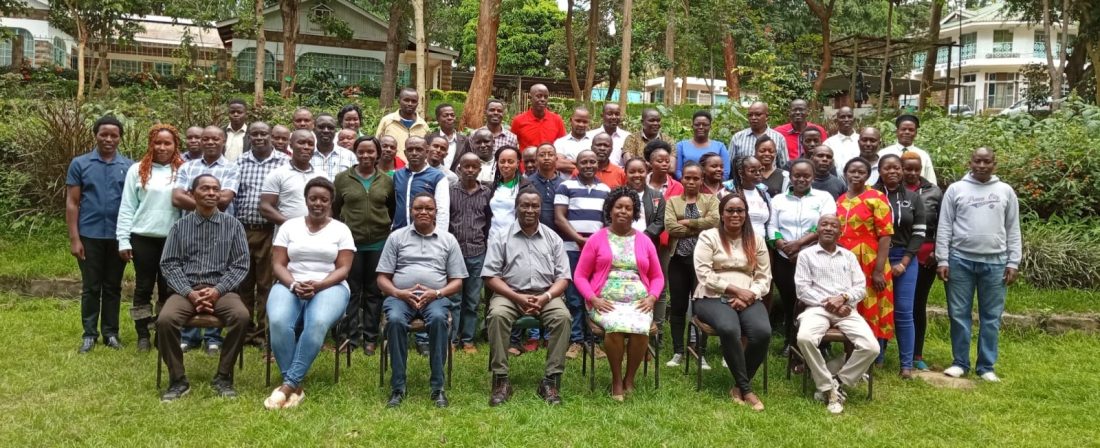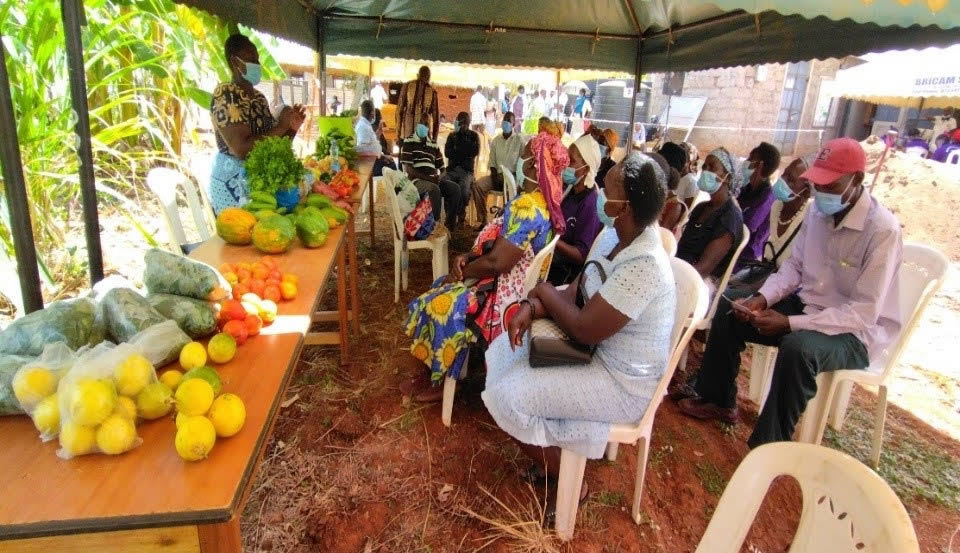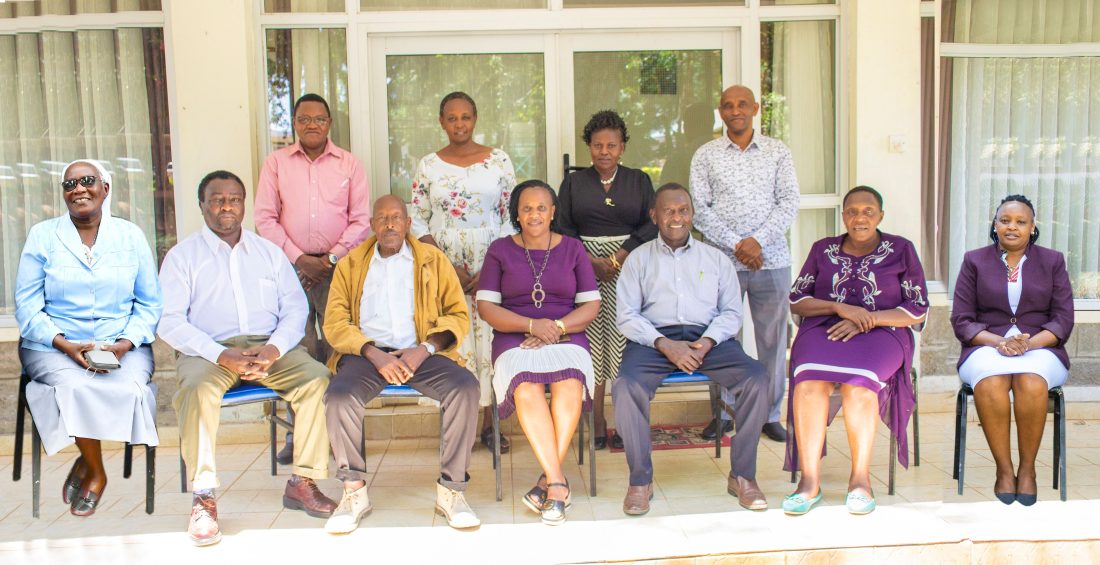
SACDEP-Kenya Staff 2023
Historical Perspective
In 1991, a small group of Kenyans sat in a Social place and started a discussion on why Kenyan People are getting poorer. This was happening in the face of generation and spending of enormous human, natural and financial resources. Kenya was (and still is) rated as one of the African countries with a well structured, agricultural research, training, extension and use of mass media. Yet millions of families lacked food and agro income security. In the following meetings that followed, the reason became clear:
Conventional Agriculture approach had come and made its contribution. Farmers in developing countries could no longer continue using high chemical- high cost export only oriented agriculture.
The approach was NOT LOGICAL RELIABLE OR REALISTIC
Solution
Establishment and implementation of Low Cost External Input Agriculture – Results. 30 years later over 450,000 families in Kenya have experienced a dramatic turn around in their household economies.
Farmers can build new houses, children can attend school, families can access medical care and overall family savings and investment secured.
Women have attained leadership skills and become chiefs and opinion shapers in their villages. Government and other development agencies have recognized SACDEP’s S.A approaches as a success case which deserves integration in policies.
SACDEP has achieved a big feet in Kenya. It has created a Logical, realistic and Reliable approach to agriculture.
SACDEP strongly holds the belief that people are not just poor. What exists is a result of marginalization, poor resource distribution, oppression, fraud and disadvantages, historically perpetuated by the powerful. The reason why some continents, regions, countries or individuals are very rich while others are very poor is as a result of selfish tendencies. People or groups continue accumulating and holding wealth endlessly. Meanwhile, people considered poor rather, have enormous resources at their disposal. They have the desire to improve their lives. Yet, opportunities to achieve their goals are often hampered by denial for knowledge, skills and empowerment. Their weak positions attract more extraction of their resources by the powerful and the already rich. The Poverty cycle therefore continues.
SACDEP Development approach
The Organization is clear that external resources do not create development. Rather, they are ejected in so as to catalyze the slow process of changing people’s lives positively. Upon provision of knowledge and skills, farmers are more exposed, informed and empowered. They are hence able to design and follow their desired destiny in life.
To achieve this, SACDEP works on the following programmes:
- Farmers’ mobilization and organization into agricultural development fora.
- Conducting hands-on training and exposure to the groups in all aspects of agriculture – production, processing, marketing or Organic products.
- Training and supporting farmer groups in the creation of a savings and credit culture.
- Documentation of Sustainable Agriculture Principles and using the same to inform and influence development policies, approaches and practices.
- Networking with the development Institutions of Government, funders, NGOs and individuals committed to Sustainable Development and empowering of people.

Our vision
SACDEP – Kenya envisions transformed and empowered communities in East Africa who are resource limited with the ability to create wealth and in-charge of their food sovereignty for sustainable livelihoods.
Our mission
To realize its vision SACDEP will facilitate and promote SEA for the resource limited communities in Eastern Africa through practical, socio-economic, scientific linkages and partnerships in SEA Principles, Pillars and Practices for food, nutrition, renewable energy and income security.
Against this thinking, the organization has continued to design, implement and evaluate projects guided by the 4 principles of sustainable Agriculture Namely;
- Economic feasibility to farming enterprises especially for small-holders.
- Environmental soundness to all agricultural undertakings.
- Social justice to all especially small-holders.
- Cultural acceptability to all initiatives introduced.

The Board of Trustees, SACDEP-Kenya 2023
SACDEP-Kenya is led by 11 volunteers who form the Board of Trustees. They are 9 from Kenyan and 2 from Tanzania. Each trustee comes with a rich experience in Sustainable Agriculture and People’s development.
The Organization undertakes its programmes through 6 interlinked sectors namely:
- Community Agriculture Programmes
- Technical Training and Research
- Productivity and Resources Development
- Finance and Resources
- Agricultural Development Training Center
- Environmental Learning Centers
- Outreach, Networking and Advocacy
Community Agriculture Programs
The CAP Sector is responsible for designing and implementing S.A projects at community level. The sector strives to turn around the lives of 1,500 families every year in over 14 counties in Kenya.
It obtains funding from small, medium and large funding Institutions and Individual persons.
Technical Training and Research (TTR) Sector
Over many years of work, the Organization has established that there is not enough qualified personnel with a clear understanding on the Principles and Practices of S.A. As such, it is still difficult to achieve adequate Informing and Influencing Personnel on SA at National level. Undertaking detailed and Scientific Research on S.A also remains a big challenge.
